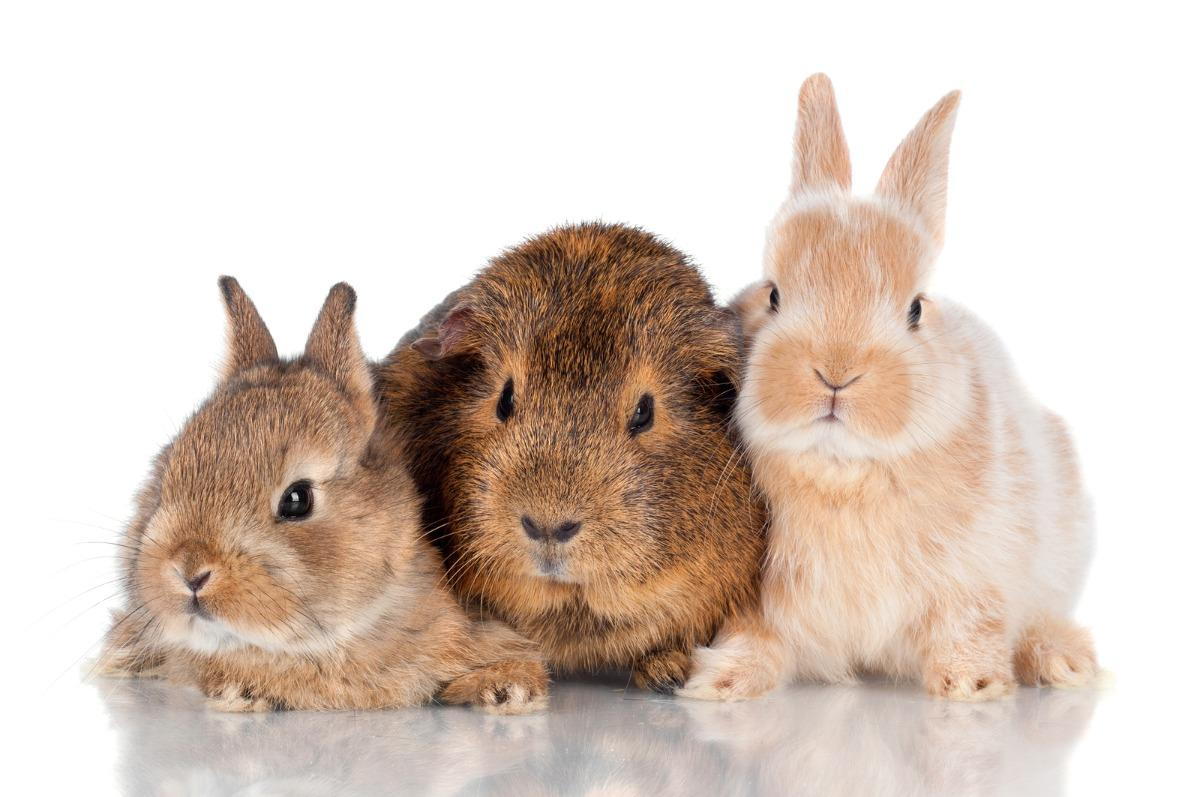As an Amazon Associate I earn from qualifying purchases.
Exotic pets offer unique companionship and fascinating experiences. Their care, though, can be quite different from traditional pets.
Caring for an exotic pet involves understanding their specific needs. These animals often come from diverse habitats and have distinct dietary and environmental requirements. Proper care ensures their health and happiness, and it helps prevent common problems. Whether you have a reptile, bird, or small mammal, knowing the right tips is crucial.
This blog will provide you with practical advice to make caring for your exotic pet easier and more effective. From setting up the perfect habitat to understanding their behavior, we will cover essential aspects of exotic pet care. Dive in to learn how to create a safe and nurturing environment for your unique companion.
Choosing An Exotic Pet
Many people find exotic pets fascinating. Some popular choices include ferrets, hedgehogs, and chameleons. Each pet has unique needs. A ferret loves to play and explore. Hedgehogs are quiet and need gentle care. Chameleons change colors and need special lights. Choose a pet that fits your lifestyle. Research their habits and needs before deciding. A well-informed choice leads to a happy pet and owner.
Before adopting, think about the pet’s needs. Consider its diet, space, and time requirements. Some pets need special food and care. Others need large cages or tanks. Make sure you have the time to care for them. Vet care can be different for exotic pets. Ensure you have a local vet who knows how to treat them. Adoption is a long-term commitment. Be ready for it.
Creating A Suitable Habitat
Creating a suitable habitat for exotic pets is vital for their health. Ensure proper temperature, humidity, and space. Provide appropriate bedding and hiding spots.
Habitat Setup
Your exotic pet needs a cozy home. Use a tank or a cage. Make sure it is big enough. Add plants, rocks, and hiding places. These make your pet feel safe. Clean the habitat often. This keeps your pet healthy.
Temperature And Humidity Control
Check the temperature daily. Exotic pets need the right heat. Use a heater if needed. Some pets like it warm. Others need it cool. Humidity is also important. Use a spray bottle to keep it moist. Or use a humidifier. Too dry is bad for many exotic pets. Place a thermometer and hygrometer in the habitat. These tools help you monitor the environment.
Diet And Nutrition
Each exotic pet has a unique diet. Some pets need a lot of fruits. Others need more proteins. Birds often eat seeds and nuts. Reptiles might need insects. Research your pet’s needs. Provide a balanced diet. Fresh water is also important.
Some pets need extra vitamins. Calcium is crucial for reptiles. Birds might need special vitamins too. Check with a vet before giving supplements. Too many can be harmful. Always follow the vet’s advice. Keep your pet healthy and happy.

Credit: www.communitypetoutreach.com
Regular Veterinary Care
Exotic pets need special vets. Not all vets treat them. Look for a vet with exotic pet experience. Check reviews online. Ask other exotic pet owners. Visit the vet’s office. Make sure it is clean. Meet the staff. They should be friendly. Your pet’s health depends on good vet care.
Exotic pets need regular checkups. These checkups catch problems early. Vets check for signs of illness. They also give advice on pet care. Regular visits keep pets healthy. Schedule checkups every year. More often for young or old pets. A healthy pet is a happy pet.
Handling And Socialization
Always wash your hands before and after touching your pet. This keeps both you and your pet safe. Use gentle movements and avoid sudden actions. Sudden movements can scare your pet. Support your pet’s body when lifting them. Never pick up a pet by their tail, legs, or wings. Allow your pet to get used to your touch. Start with short handling sessions. Gradually increase the time.
Spend time near your pet’s living area. Let them see and smell you often. Talk to your pet in a calm voice. Offer treats from your hand to build trust. Be patient. Building trust takes time. Avoid forcing interactions. Let your pet approach you when they feel safe.

Credit: mariemontvetclinic.com
Behavior And Enrichment
Exotic pets have unique behaviors. It’s important to observe them closely. Watch how they move, eat, and interact. Each pet has its own way of showing happiness, stress, or discomfort. Learning these signs helps in understanding their needs. Patience is key. Some pets take time to get comfortable. Give them space and time to adjust.
Enrichment activities are fun and keep pets engaged. Use toys that are safe for your pet. Rotate toys to keep things interesting. Create puzzles with food to stimulate their minds. Climbing structures are great for active pets. Training sessions can also be enriching. Teach them simple tricks. Always reward good behavior. Enrichment makes pets happy and healthy.
Common Health Issues
Exotic pets often face unique health issues. Regular vet check-ups and a balanced diet help keep them healthy. Proper habitat conditions are crucial for their well-being.
Signs Of Illness
Look out for common signs of illness. Pets may eat less or stop eating. They might also drink more or less water. Watch for changes in their behavior. They could become more aggressive or very quiet. Check for any unusual lumps or bumps. Clear eyes and a shiny coat mean good health. If your pet looks tired or weak, that is a sign too. Frequent sneezing or coughing is not normal. Always keep an eye on their droppings. Changes in droppings can signal problems.
Preventative Measures
Give your pet a balanced diet. Fresh food and water are essential. Clean their habitat often. A clean home reduces germs. Take them for regular check-ups with the vet. Vaccinations are important too. Exercise keeps pets healthy. Play with them daily. Give them safe toys. Watch for signs of stress. Stress can make pets sick. Keep their living area at the right temperature. Too hot or too cold is bad. Always wash your hands before and after touching them.
Travel And Transportation
Ensure your exotic pet is in a secure carrier. The carrier should have enough space for them to move. Use soft bedding for comfort. Keep the carrier ventilated to allow fresh air. Avoid placing the carrier in direct sunlight. Make sure it is fastened properly in the vehicle. Carry a travel kit with food, water, and any necessary medications. Plan for regular stops to check on your pet. Always keep them calm during the journey.
Find a trusted friend or family member to care for your pet. Boarding facilities may offer specialized care for exotic pets. Ensure the facility is reputable and clean. Ask if they have experience with your type of pet. Provide detailed care instructions to the caregiver. Include feeding schedules, habitat requirements, and any special needs. Consider hiring a professional pet sitter. Make sure they are knowledgeable about exotic pets. Check their references and reviews for reliability.

Credit: www.wacspringhill.com
Frequently Asked Questions
How Often Should I Feed My Exotic Pet?
Feeding frequency depends on the species. Generally, exotic pets need feeding once or twice daily. Always follow specific dietary guidelines for your pet.
What Temperature Is Ideal For Exotic Pets?
Temperature requirements vary by species. Reptiles often need warmer environments, while small mammals prefer moderate temperatures. Research your pet’s specific needs.
Do Exotic Pets Need Special Housing?
Yes, exotic pets often require specialized habitats. Ensure proper temperature, humidity, and space. Research your pet’s specific housing needs for optimal health.
How Do I Keep My Exotic Pet Healthy?
Regular vet check-ups are crucial. Provide a balanced diet, proper housing, and mental stimulation. Maintain hygiene and monitor for any health issues.
Conclusion
Caring for exotic pets can be rewarding. Always prioritize their unique needs. Research specific care requirements. Provide a suitable environment. Offer a balanced diet. Regular vet visits are essential. Be patient and attentive. Your pet relies on you. Enjoy the journey of exotic pet ownership.
With proper care, your pet will thrive. Happy pet keeping!
As an Amazon Associate, I earn from qualifying purchases.

